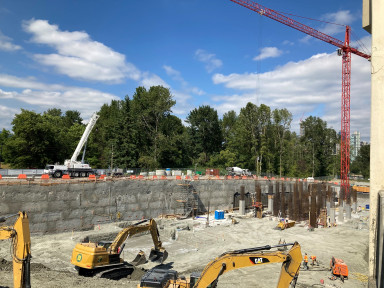Globalization of urban climate governance and the making of net-zero cities
Narratives, pathways, instruments
This research explores the circulation of the ‘net-zero’ policy target for cities and analyses how different agents acting at a transnational scale have contributed to promote it and shape its meaning for urban policies. It shows that this emerging norm is taking shape as an assemblage of narratives, performances, knowledge, and policy instruments that circulate transnationally thanks to multiple agents, from UN institutions to transnational city networks, city leaders, and urban experts. Using multi-sited ethnography, the research retraces the emergence and transnational diffusion of the ‘net-zero’ city target, but also highlights how circulating narratives, knowledge, and policy instruments are assembled differently in local contexts.
- transnational urban climate governance
- city networks
- net-zero cities
- policy assemblage
- multi-sited ethnography
Context
At the World Leaders’ Summit that inaugurated COP26 in Glasgow (2021), the Mayor of Los Angeles and chair of the C40 network Eric Garcetti pledged that ‘Cities Race To Zero has produced a global coalition of over 1,000 cities and local governments representing 722 million people, more than a quarter of world GDP, committed to reaching net-zero emissions by 2050’.1 In the years following the publication of the IPCC 1.5ºC Special Report in 2018, thousands of cities, mostly located in Europe or North America and members of transnational city networks, adopted net-zero emissions targets for mid-century.2 While it is widely recognized that participation in transnational city networks has enhanced city-level climate action,3 transnational urban climate governance has experienced deep changes after the adoption of the Paris Agreement and further institutionalization within the UNFCCC regime.4 This process of ‘globalizing’ urban climate governance has resulted in ‘net-zero’ becoming a new policy target for urban governance,5 yet little is known about this norm in the making, in particular its meaning for the future of urban areas and its implication for city governance.
Aims
The research explores the dynamics of emergence and diffusion of the net-zero cities as a new policy target and the meaning of this new global policy goal for urban areas and city governance. Building on the literature on cities as norm entrepreneurs in political science and taking into account the evolution of transnational urban governance after the adoption of the Paris Agreement,7 it highlights the multiple agents that have interacted in promoting this norm transnationally and shaping its meaning for the future of cities, but also the emerging controversies and contestations arising from it. Hence, the following questions are investigated:
What dynamics in the climate regime explain the adoption of ‘net-zero emissions’ as a new policy target for urban climate governance?
How are different agents shaping the meaning of ‘net-zero cities’ and what contestations are arising?
Research design
Conceptually, the research adopts a ‘bottom-up’ perspective that departs from constructivist norm theory in international relations.8 Building on sociological perspectives of public action,9 it proposes to conceptualize the net-zero cities target as a ‘policy assemblage’ of discourses, public performances, expert knowledge, and policy instruments that circulate transnationally.
Methodologically, this assemblage is brought to light using multi-sited ethnography, which allows unpacking the transnational circulation of actors, but also narratives and policy tools and questioning their meaning across local contexts.10 Ethnographic observations of international climate summits (COP25, COP26), analyses of policy documents, and interviews with urban experts and local decision-makers in leading European cities have been used as the main methods for uncovering the process of assembling the net-zero city.
From an empirical perspective, the research (1) underscores how over the course of 30 years of international advocacy, cities have successfully constituted themselves as global actors with a crucial role in implementing the Paris Agreement. Furthermore, it (2) analyses how transnational city networks, by announcing ambitious pledges for their members at COP26, have contributed to the ‘performative’ shift of climate summits (COPs) with the aim of maintaining political momentum around the Paris Agreement, but also as a way to maintain their leadership and gain influence in the climate regime. Also, (3) the ongoing challenge of translating this norm into urban contexts is currently prompting transnational urban experts to envision net-zero pathways for cities, but conflicting visions emerge amidst political and climate uncertainties. Finally, as the pursuit of net-zero emissions necessitates improved coordination across urban sectors, the research highlights the transnational circulation of climate budgeting as a novel best practice for city governance, while also emphasizing its variations across local contexts and the political controversies associated with standardization.
Supervisors:
- Prof. Dr. Stefan Cihan Aykut
- Prof. Dr. Cathrin Zengerling




